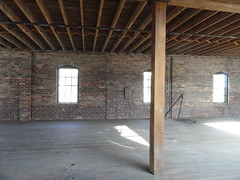Since 2007 there has been a radical growth in the application and reach of hacker culture. No longer limited to the computer underground, principles of the hacker ethic now pervade contemporary corporate software development and the backbone one of the world’s largest economic infrastucture, the internet. This comes as no surprise because many experts and leading professionals in the field of computer science are also leaders of the hacker subculture. What is surprising is how the beliefs and values of the hacker subculture are being appropriated and applied in fields wholely distinct from computer science including biology, manufacturing, and community development.
Frustrated by the forking of public domain germplasm by corporate interests, scientists extended a free software license, the GNU Public License (GPL), to cover material transfer agreements of plant germplasm, called the General Public License for Plant Germplasm (Hope, 2008). Looking for a way to create a commons-based peer production model for the design and manufacture of machines, small businesses, design and engineering professionals, and academics joined forces with Creative Commons to adapt the Open Source Definition for Open Source Software to an Open Source Hardware Definition as the basis of a new licensing mechanism (OSHW, 2010). Wanting to create spaces where people can come together to share their passion for technology and science, hackers worldwide opened up more than 220 community centers known as hackspaces or hackerspaces from 2007 to 2010. These three examples demonstrate that hacker culture is in the process of making a dramatic expansion from cyberspace into our physical environment.
My current research paper explores how the hacker ethic, a set of fluctuating and negotiated principles that underpins the behavior of the hacker subculture, is becoming substantiated. In particular, it surveys the emerging hackspace movement to better understand how the hacker ethic informs physical organizational culture and is changed by its application from virtual communities to physical organizations.
//// Hope, Janet. 2008. Biobazaar: The Open Source Revolution and Biotechnology. Harvard University Press.
//// 2010. Open Source Hardware (OSHW) Draft Definition version 0.3. Freedom Defined. http://freedomdefined.org/OSHW Accessed 7/16/2010.









